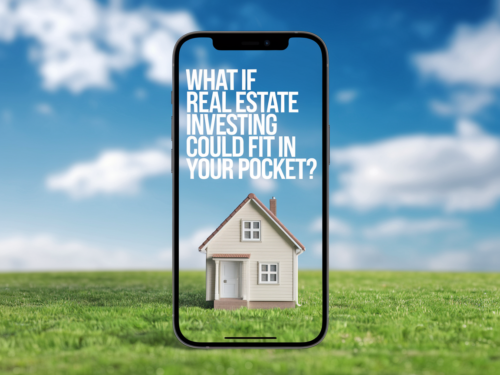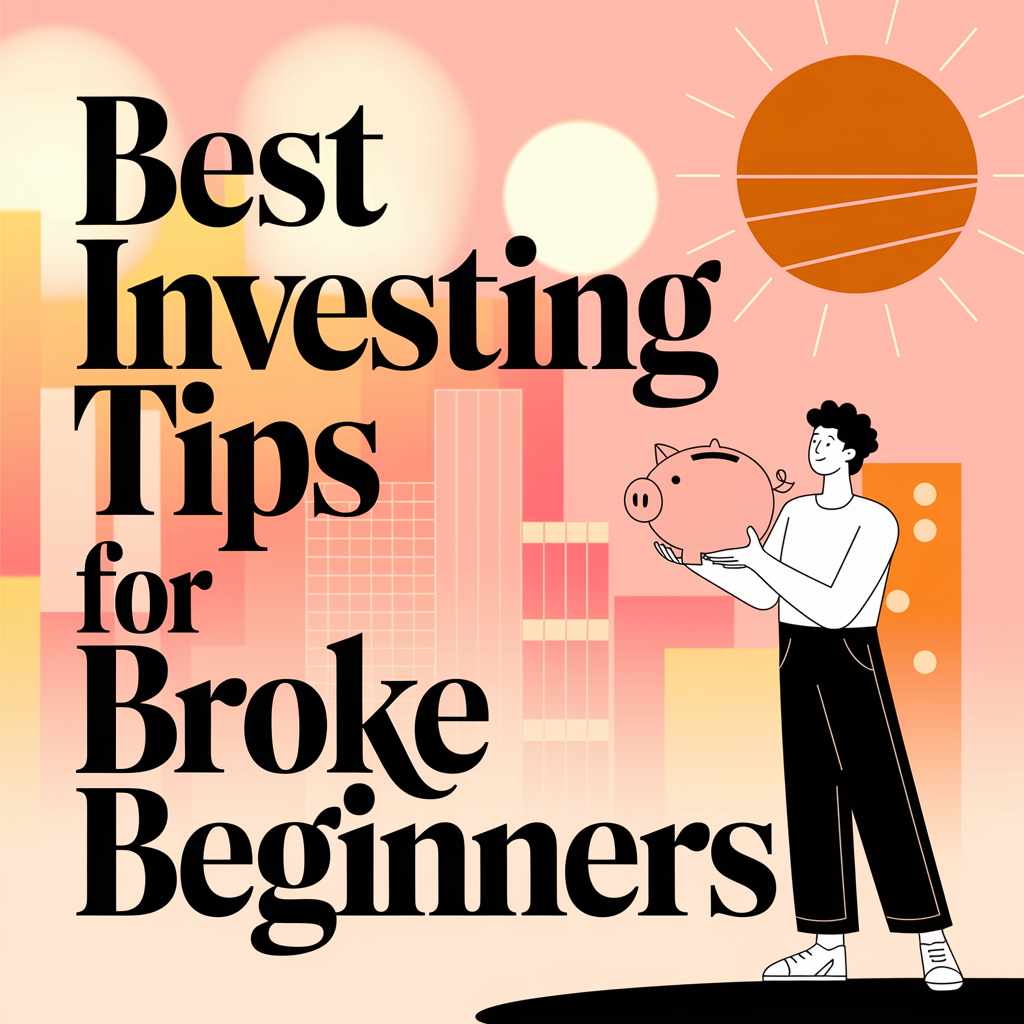
How Do I Start Investing When I’m Broke?
When I first wanted to start investing, I was broke. Not “a little tight” broke—I mean barely making it past the bills with anything left over. I kept thinking investing was something I’d do later—after I got a raise or had a few thousand saved up.
But here’s what I realized: waiting was the real problem. It wasn’t about the amount I had. It was about building the habit, even if it started small.
I started with just $10. That tiny amount got me in the game. It made me feel like I was finally moving forward. Once I saw it grow—even by a few cents—it lit a fire in me.
If you’re stuck thinking, “I can’t afford to invest,” I get it. But the truth is, you can start where you are. And when you do, it completely shifts how you view money, growth, and your future.
I laid out how I did it (without thousands in the bank) in this step-by-step breakdown of how I started investing with just $10. Trust me—it’s not about how much you start with. It’s about starting.

Best Investment Options for Beginners With Low Cash
When I was starting out, I didn’t just want to invest—I wanted to do it smart. I didn’t have time or money to waste on risky platforms or confusing strategies. I needed something simple, reliable, and beginner-friendly.
Here are the three options I personally used—and still use:
1. Acorns: Set-It-and-Forget-It Investing
Perfect for total beginners. It rounds up your purchases and invests the change automatically. Super low effort. Super consistent.
2. Robinhood: Choose Your Own Stocks or Crypto
If you want to buy stocks or crypto yourself, Robinhood is super easy to use. No commission fees, and you can start with just a few bucks.
3. Fundrise: Real Estate Investing Without a Down Payment
I never thought I could invest in real estate with less than $1,000—until I found Fundrise. You can start with $10 and earn passive income from real estate without owning a single property.
These apps made investing feel possible for me. They’re easy, affordable, and designed for people who aren’t rolling in cash yet—but still want to build something long-term.

Is It Even Worth Investing Small Amounts?
When I first started throwing $10 here and $20 there into my investing apps, I’ll be honest—I wondered if it was even worth it. What’s a few bucks really going to do, right?
But then I ran the numbers. And that changed everything.
Here’s what I found out:
- $10 a week = $520 a year. That’s not nothing.
- With average market growth, even small, consistent investments can snowball over time.
- The habit matters more than the amount. Once I made investing a weekly habit, the rest came naturally.
That small start built the discipline I needed to keep going. And eventually, those little deposits started turning into something real.
Need proof? I break down just how powerful long-term investing can be—even starting small—in this breakdown of how the S&P 500 turns consistency into big money. I was blown away when I first saw how fast it adds up.
So yeah—it’s 100% worth it. If anything, it’s the only way I’ve ever seen progress without needing a big paycheck.
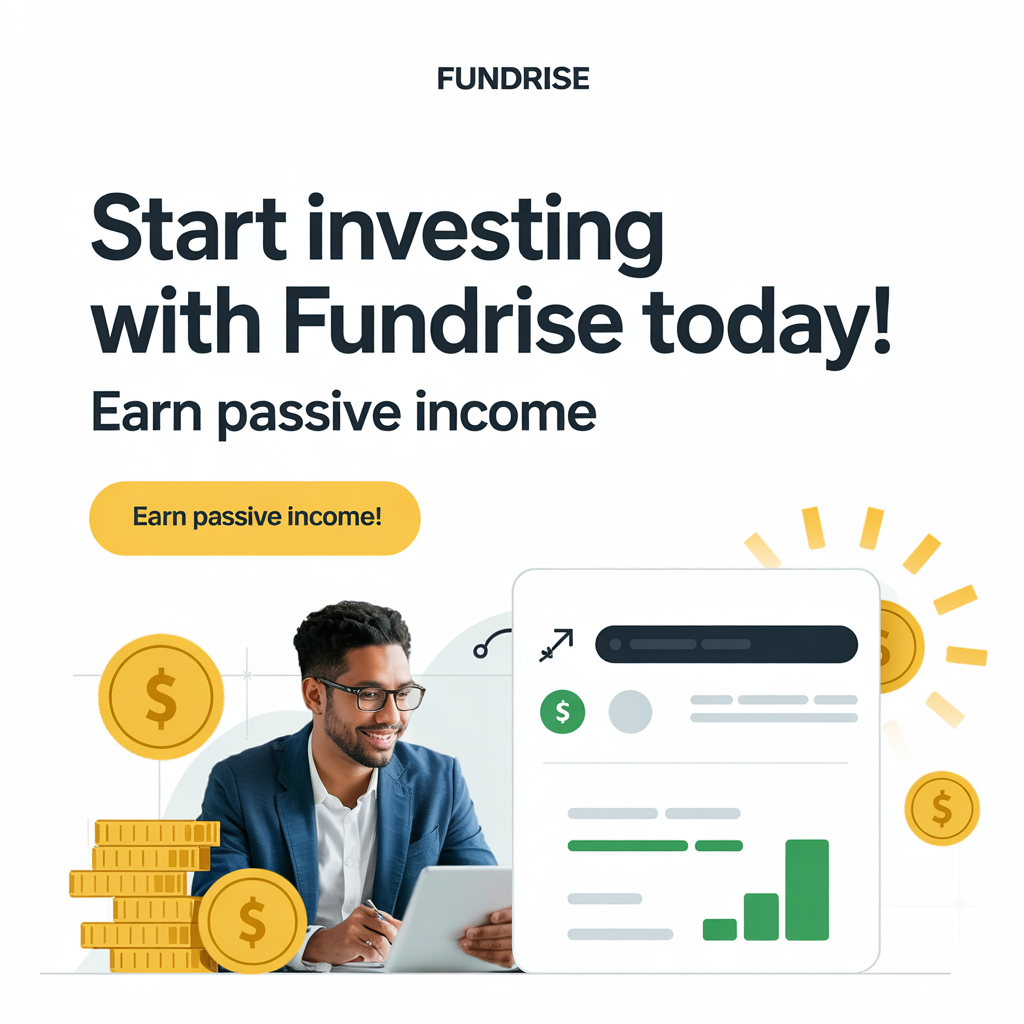
What Are the Biggest Mistakes Broke Beginners Make?
I made most of these myself, so I’m not judging—but if you want to avoid spinning your wheels like I did, here’s what to watch for:
1. Waiting too long to start
I wasted years thinking I needed more money before I could invest. If I’d started with even $5 a week earlier, I’d be way ahead.
2. Chasing hype
I tried jumping into crypto and meme stocks without knowing what I was doing. Don’t invest based on what’s trending on TikTok. Stick to solid, long-term stuff.
3. Getting discouraged
I’d check my account and see it was only up $0.87 and feel like quitting. What I didn’t realize is that growth doesn’t show up right away—it builds over time.
4. Relying on one income stream
I thought my 9–5 paycheck was my financial plan. It wasn’t. Once I realized how risky that mindset was, I made some big changes. If you’re still depending on just one paycheck, I seriously recommend checking out why I’ll never rely on one income again. That shift changed everything for me.
The truth? The people who win with investing aren’t the ones who start rich—they’re the ones who start smart and stick with it.
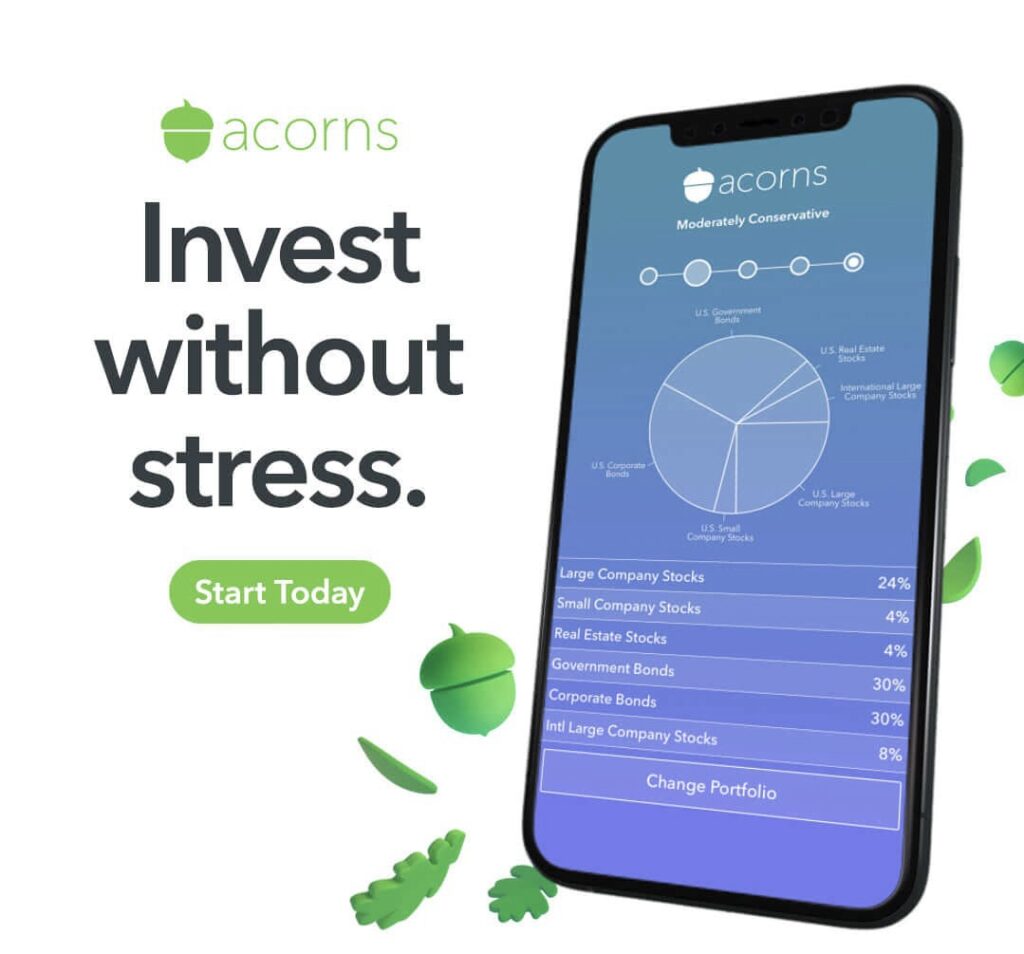
Best Beginner Investing Apps (Even If You’re Broke)
I tested a bunch of apps when I first started, and most of them were either confusing, expensive, or just didn’t feel beginner-friendly. But a few stood out—and honestly, they’re still my go-to choices today.
Here are the three best apps I’d recommend to any broke beginner trying to invest with limited cash:
1. Acorns
This was the very first app I ever used to invest. It takes your spare change and invests it automatically. I didn’t even notice the money leaving my account—but I definitely noticed it growing.
Best for: Hands-off investing with zero stress.
2. Robinhood
Once I got more comfortable, I wanted to try buying specific stocks and crypto. Robinhood let me do that with no commission fees, and I could start with as little as $1.
Best for: People who want control and like learning as they go.
3. Fundrise
I never thought I could invest in real estate without saving for years—but Fundrise let me start with just $10. It puts your money into private market real estate projects, and you earn from rental income and long-term value.
Best for: Long-term passive real estate growth.
Each one fits a different need, so if you’re like me and want to build a diversified money plan without being rich—these three are the way to go.
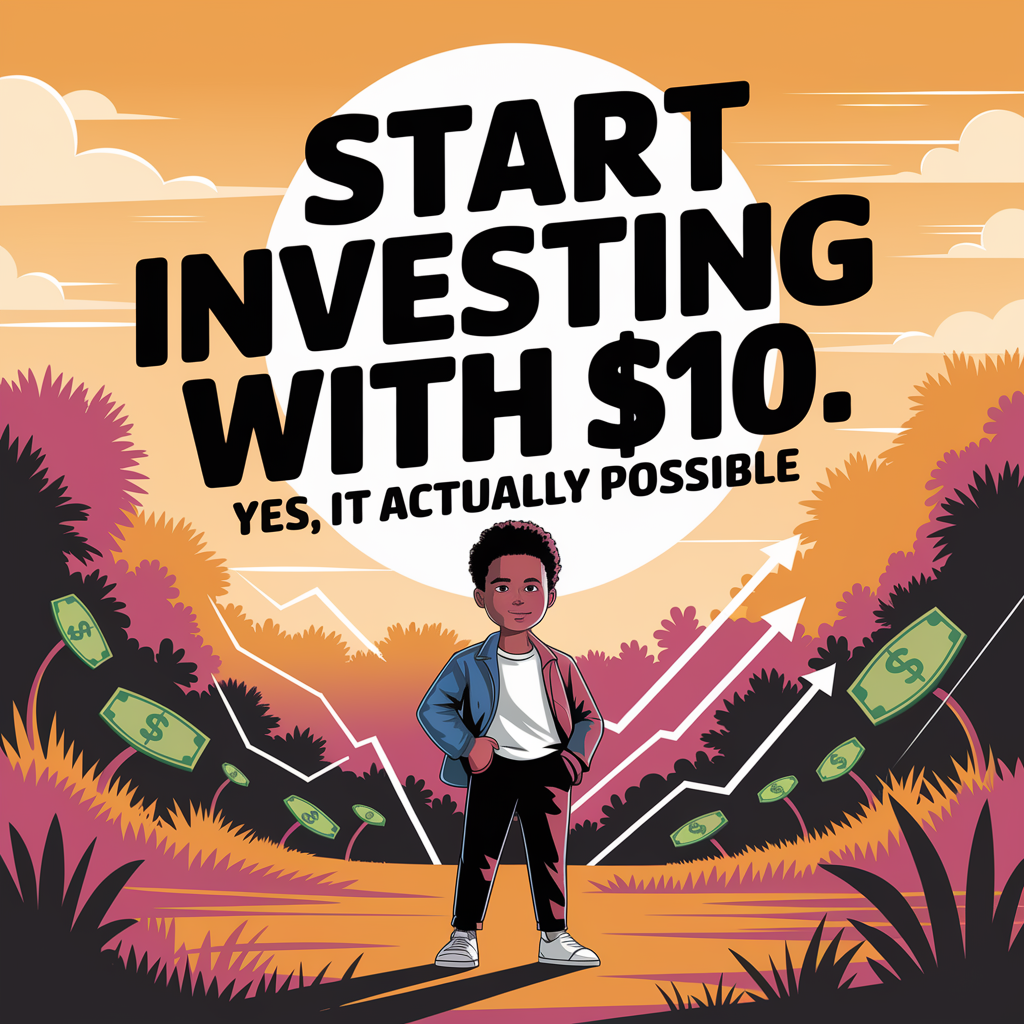
How to Invest on a Budget Without Stressing
One of the reasons people avoid investing is because it sounds complicated and risky. I used to feel that way too—until I learned how easy it actually is to invest small and keep it simple.
Here’s what helped me stop overthinking it:
1. Automate everything
Set up weekly or monthly transfers—even $5 or $10 at a time. The less you think about it, the more consistent you’ll be.
2. Start with one platform
Don’t get overwhelmed by choices. Pick one (like Acorns or Robinhood), learn it, and get comfortable before adding more.
3. Keep it boring
You don’t need to chase flashy crypto coins or hot stock tips. Boring, reliable investments grow wealth quietly.
4. Remind yourself why you’re doing it
This isn’t about getting rich next week—it’s about changing your future. Every small deposit is a win.
Honestly, once I got out of my own way, investing became the easiest part of my finances. It’s the only thing working in the background while I sleep, scroll, or binge Netflix. And that’s why I stick with it.

Can I Still Invest If I Don’t Have a Steady Job?
Yes—1000% yes. I started investing when my income was all over the place. Some weeks I was flush, others I was scraping by. The trick? I didn’t wait for things to be perfect. I just adjusted how and when I invested based on what I had at the time.
Here’s what worked for me:
- Automated small deposits when possible
Even $5 a week was something. If I couldn’t do that one week, no stress—I just picked it back up later. - Used apps that didn’t penalize me
Acorns and Fundrise don’t require huge, regular contributions. They’re built to work with you, not against you. - Focused on earning extra income when I needed a boost
I did little side hustles and flipped a few weekend gigs when things were tight. I even made a quick $100 with this simple weekend hustle, which I later tossed straight into my investing account.
So no, you don’t need a cushy 9–5 to start investing. You just need to stay consistent when you can, and give yourself grace when you can’t. Progress, not perfection.

Don’t Wait to Be Rich—Invest Now
I used to think investing was for people who already had money. Now I know that investing is how people build money.
Whether you’ve got $10, $50, or just a willingness to start—you can do this. Every dollar you invest today is a dollar your future self will thank you for. And trust me, your future self? They’ll care way more about compound interest than whatever trendy thing you’re tempted to spend $10 on today.
If you want to go deeper into how car payments, debt, and lifestyle creep keep people broke, don’t miss this article about why buying a car keeps you broke. It’s a mindset shift that helped me take control of my money—and it started with small investments and simple moves.
You don’t need to get rich to start investing.
You start investing so you can stop being broke.
And there’s no better time to start than now.


